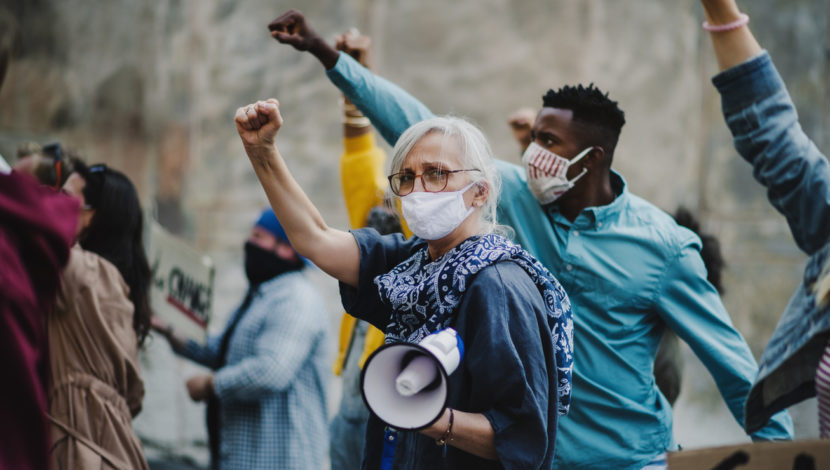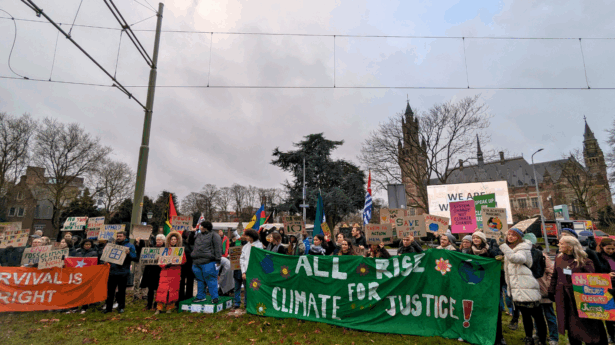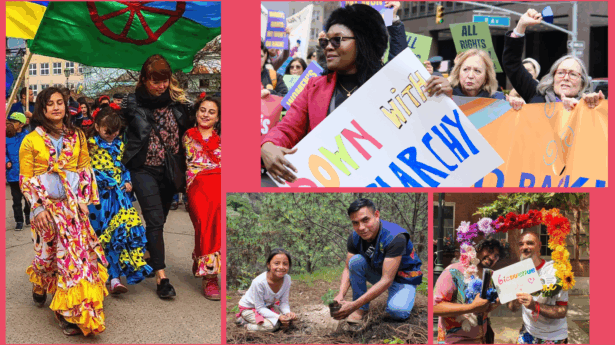The Unitarian Universalist Service Committee advances human rights through grassroots collaborations.
Chauvin’s Prison Sentence Urges Us to Continue the Fight for Racial Justice

By UUSC Staff on June 25, 2021
In response to former police officer Derek Chauvin being sentenced to a little more than 22 years in prison, UUSC CEO and President Rev. Mary Katherine Morn released the following statement:
“Derek Chauvin’s convictions on second- and third-degree murder and second-degree manslaughter on April 20 were an important step toward accountability for police violence against Black people in this nation. This outcome was an all-too-rare instance in which this nation’s legal system declined to passively observe wanton acts of racialized violence inflicted upon people of color by those with power. Let us be clear that scenarios like this are generally the exception and not the rule when it comes to police violence against Black people.
Lengthy prison sentences do not constitute justice. In its purest form, justice is living in a world where racialized oppression doesn’t exist, law enforcement officers would never consider a knee to the neck or a gunshot as a viable solution to minor conflict, and every person is treated like a human being rather than a target of bigotry and animus. Justice is restorative, it is not based on the wrong-headed belief that punishment somehow equals reconciliation or reform of the systems and institutions that regularly oppress so many people.
Regardless of the severity of Chauvin’s prison sentence, we can no longer in good conscience operate under the naive notion that our criminal justice system is in fact just. As Chauvin spends the next 22 years incarcerated, we cannot ignore the fact that our prison and policing systems are designed to oppress and exploit people of color. We cannot accept the fact that our judiciary system is stacked against those who are Black, Latinx, immigrants, houseless, poor, mentally ill, LGBTQ+, and living with disabilities.
For each Derek Chauvin, there are two George Zimmermans. For every instance that our courts hold bad actors to account for their violence and bigotry, there are numerous instances where those acts are treated with impunity. More than a year after the murder of George Floyd, we cannot let his murderer’s punishment make us complacent enough to think that justice is a principle equally dispensed and experienced. It most certainly is not.
As long as we live in a nation—in a world—where racialized violence and oppression happens daily, we cannot rest. In the name of people like Floyd, Breonna Taylor, Walter Scott, Philando Castile, Trayvon Martin, and Freddie Gray, we must rise to meet the moral imperative to not only remember those whose lives were taken, but to bear the responsibility of continually seeking justice in their names. That justice does not lie in incarceration; it is rooted in understanding, dismantling, and reimagining the systems and institutions that we operate in and depend on. In fact, the moment we consign the murder of Floyd and the incarceration of Chauvin to history, we allow the very hatred and prejudice that extinguished the life of a 46-year-old man on a Minneapolis street to lull us all into a sense of deadly complacency.”
***
Photo Credit: iStock – Halfpoint

